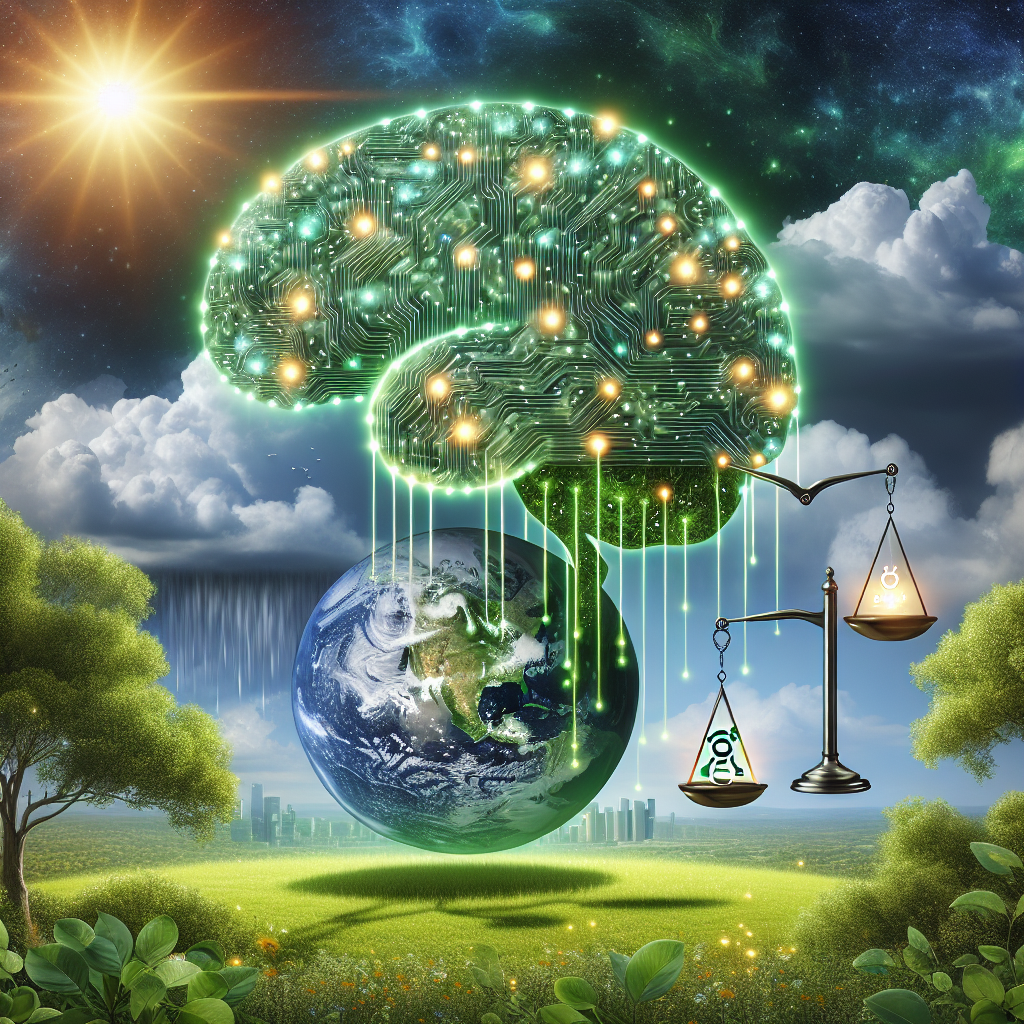The Intersection of AI and Climate Action: A New Era of Environmental Solutions
As the world grapples with the escalating climate crisis, artificial intelligence (AI) has emerged as a powerful tool in our arsenal against global warming. This comprehensive exploration delves into how AI-driven solutions are revolutionizing our approach to climate change mitigation and adaptation strategies.
Understanding AI’s Role in Climate Change Mitigation
Artificial Intelligence represents a paradigm shift in how we address environmental challenges. By leveraging machine learning algorithms and big data analytics, AI enables us to tackle climate change with unprecedented precision and efficiency.
Smart Grid Management and Energy Optimization
One of the most promising applications of AI in climate action lies in smart grid management:
- Predictive Analytics: AI algorithms forecast energy demand and optimize distribution
- Grid Stability: Machine learning ensures efficient integration of renewable energy sources
- Energy Storage: AI optimizes battery storage systems and power distribution
AI-Powered Climate Prediction and Modeling
Advanced AI systems are transforming how we understand and predict climate patterns:
- Enhanced Weather Forecasting: Machine learning improves accuracy of climate predictions
- Risk Assessment: AI models help identify vulnerable areas and populations
- Ecosystem Monitoring: Satellite data and AI track environmental changes in real-time
Reducing Carbon Emissions Through AI Innovation
AI technologies are pioneering new ways to reduce carbon footprints across industries:
- Industrial Optimization: AI reduces energy consumption in manufacturing processes
- Building Management: Smart systems minimize energy waste in buildings
- Transportation: AI optimizes routes and reduces fuel consumption in logistics
Agricultural Solutions and Food Security
AI is revolutionizing sustainable agriculture practices:
- Precision Farming: AI-driven systems optimize resource use and reduce waste
- Crop Prediction: Machine learning models forecast yields and prevent losses
- Water Management: Smart irrigation systems conserve water resources
Ocean Conservation and Marine Protection
Artificial intelligence is making significant contributions to ocean conservation:
- Marine Monitoring: AI tracks ocean health and marine ecosystem changes
- Pollution Detection: Machine learning identifies and tracks marine pollution
- Fish Stock Management: AI helps maintain sustainable fishing practices
Urban Planning and Smart Cities
AI is transforming urban development to combat climate change:
- Traffic Management: AI reduces congestion and emissions in cities
- Waste Management: Smart systems optimize recycling and waste processing
- Urban Planning: AI helps design climate-resilient cities
Renewable Energy Optimization
AI is accelerating the transition to renewable energy:
- Solar Power: AI optimizes solar panel placement and maintenance
- Wind Energy: Machine learning improves wind farm efficiency
- Energy Storage: AI enhances battery technology and storage solutions
Disaster Prevention and Response
AI systems are crucial in managing climate-related disasters:
- Early Warning Systems: AI predicts natural disasters with greater accuracy
- Emergency Response: Machine learning optimizes disaster response efforts
- Recovery Planning: AI assists in post-disaster reconstruction
Future Prospects and Challenges
The future of AI in climate action holds immense potential:
- Technological Advancement: Continuous improvement in AI capabilities
- Global Collaboration: International partnerships in AI climate solutions
- Ethical Considerations: Addressing AI’s environmental impact
Policy Integration and Implementation
Successfully implementing AI solutions requires:
- Regulatory Frameworks: Developing appropriate policies for AI climate solutions
- International Cooperation: Coordinating global efforts in AI climate action
- Public-Private Partnerships: Fostering collaboration between sectors
Conclusion: The Path Forward
As we continue to face the challenges of climate change, AI-driven solutions offer hope and practical approaches to environmental protection. Through continued innovation, collaboration, and responsible implementation, these technologies will play an increasingly vital role in securing a sustainable future for our planet.
The integration of AI in climate change solutions represents not just technological advancement, but a fundamental shift in how we approach environmental challenges. As these technologies continue to evolve, their potential to create positive environmental impact grows exponentially, making them an essential tool in our fight against climate change.

Leave a Reply